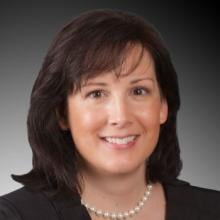Virginia Mason Franciscan Health, an integrated 10-hospital health system serving the Puget Sound region, continues its tradition of providing innovative, user-friendly health care with the launch of a program that helps patients recover at home instead of in the hospital.
The Virginia Mason Franciscan Health Home Recovery Care program was launched earlier this year for Medicare fee-for-service patients at the system’s 328-bed St. Joseph Medical Center in Tacoma.
“We’re able to offer the same essential elements of care that a patient receives in the hospital within the comfort of the patient's home, which is a convenient and safe alternative to the traditional inpatient stay,” said Kim Moore, MD, Virginia Mason Franciscan Health’s interim chief medical officer.
The system is exploring future expansion of the program to include additional locations and patients covered by other health plans. Virginia Mason Franciscan Health is a member of the AMA Health System Program, which provides enterprise solutions to equip leadership, physicians and care teams with resources to help drive the future of medicine.
For the Home Recovery Care program, Virginia Mason Franciscan Health is partnering with Nashville-based Contessa Health. The effort is intended to boost capacity and access while mitigating staffing shortages that have been exacerbated by the COVID-19 pandemic.
Home delivery of acute care
The Home Recovery Care service will serve patients diagnosed with acute conditions such as COVID-19, pneumonia, chronic obstructive pulmonary disease, congestive heart failure and urinary tract infections—but would not necessarily be limited to those conditions.
Treatment includes carrying out a physician-led care plan, twice-daily visits by home care nurses, 24/7 virtual care and remote monitoring by a physician, acute care nurse and recovery care coordinator using a computer tablet provided to the patient.
“We have had nice feedback from our patients who talk about how they're sleeping better at home versus in the hospital,” Dr. Moore said. “They appreciate the care that the nurses are giving them and the opportunity to be at home with the support from their family.”
To assess how the program is working, Virginia Mason Franciscan Health will be tracking patient satisfaction scores and how long the home care nurses will be needed and comparing that with typical hospital lengths of stay for patients with similar diagnoses.
In other systems, Contessa’s home recovery model has been shown to cut hospital readmission rates by up to 44%, lower lengths of stay by 35% and achieve patient satisfaction scores of 90%.
Dr. Moore believes similar scores can be obtained by Virginia Mason Franciscan Health and she credits the success of the program to its comprehensive care focus and the frequent interactions with patients that allow physicians and nurses to spot opportunities for rapid intervention if a patient’s condition begins to decline.
It also includes medication reconciliation and identifying social determinants of health such as food insecurity that can affect patients’ overall health and recovery.
Hybrid approach to cut patient guesswork
Virginia Mason Franciscan Health also will open several hybrid facilities offering emergency and urgent care. The first hybrid ED-urgent care center is being built in Bremerton, Washington. Construction of several more such centers is planned over the next four years.
Dr. Moore cited a study published in the American Journal of Managed Care that found 37% of patients treated in an ED had conditions that did not require emergency care.
“The hybrid ER-urgent care model eliminates the guesswork for the patients,” Dr. Moore explained, adding that it helps funnel patients away from the ED so resources aren’t diverted from patients with life-threatening emergencies while lowering wait times and growing capacity.
Urgent care “patients will only be billed for the level of care that they receive,” Dr. Moore said. “Many patients are worried about the bill they’ll receive when they go to the emergency department.”
The hybrid care centers will be open 24/7 and equipped with on-site laboratory equipment and a radiology suite with x-ray machines and computed tomography scanners.
The home-recovery program and hybrid care centers represent VMFH’s “commitment to providing safe and high-quality care to the patients in our community and our commitment to exploring new and innovative care models,” Dr. Moore said.




